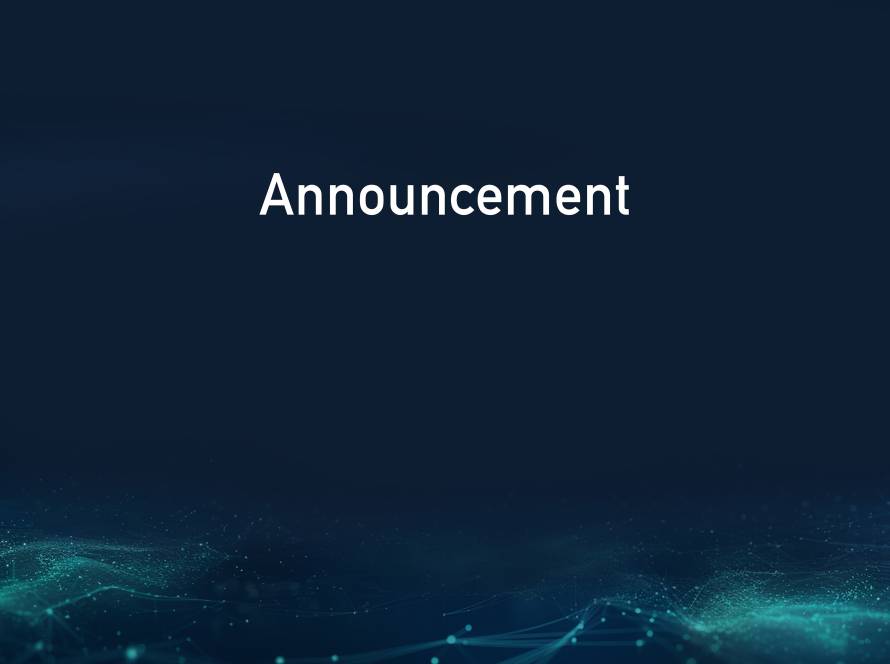MCEX: the "Bus Transport System" of Global Finance
Charles Li
Chairman, MCEX
January 2025
Happy new year to you all!
As we enter 2025, I am excited to report that MCEX is ready to kick off a series of roadshows with global institutional and professional investors to showcase the first batch of revenue-based financing (RBF) product offerings on our exchange.
While this is only the early start of our campaign, it is an important milestone for the development of the RBF market. I wanted to take this opportunity to share our thoughts on why RBF has become a necessary and increasingly important addition to traditional finance and how MCEX’s new market infrastructure will make today’s global financial markets more inclusive.
To make it easier to understand, I am borrowing the concept of mass transit to illustrate how the credit, equity, and RBF markets operate respectively and in what ways they complement and complete each other. They are like different means of transportation, representing different approaches to connecting financial markets and the real economy.
A. TRAINS: CREDIT MARKET – THE BACKBONE OF OUR FINANCIAL SYSTEM
The credit market operates very much like rail transport, offering safe and low-cost journeys to the public, but with many restrictions imposed on passengers.
To travel by train, passengers only have to pay an affordable train fare (interest cost), but they need to follow the train schedule (repayment schedule) and adhere to various rules and regulations (debt covenants); owners / operators of trains (banks and other creditors) enjoy safer but lower returns on their capital.
Trains serve passengers through large networks of stations and signaling systems (bank branches and credit assessments), through which the train operators screen passengers and maintain risk control, creating reasonably high barriers of entry. In recent years, bank funding has become more accessible than ever before, in part, with the rise of fintech lending, which has enabled banks to make better informed lending decisions and lend to a wider range of borrowers with the help of AI and big data.
B. PRIVATE CARS: EQUITY MARKET – THE LEADING LIGHTS OF OUR FINANCIAL SYSTEM
While train rides are more affordable, most businesses need their own transport (permanent capital) to run their businesses. Early-stage businesses start with bikes (startup capital / seed money) and over time upgrade to cars with backing from external investors (issuing equity in exchange for larger amounts of permanent capital).
The equity market therefore operates very much like trips on private cars. Owning a car allows businesses to travel long and far, potentially delivering higher returns to investors but also exposing them to higher risks. Driving a car also gives businesses greater flexibility but the cost of owning a car makes it prohibitive for many businesses. As private cars are expensive purchases, investors generate returns primarily from exits in the secondary market, rather than periodic cash dividends.
To justify the higher investment risks and support a liquid secondary market, more stringent regulatory, vetting, and disclosure standards are put in the place in the equity market. Therefore, travelers need to obtain a driver’s license (regulatory vetting), have their cars pass regular vehicle inspections (audited financials), and comply with road safety regulations (exchange market regulations). As such, equity raises often come with very high barriers of entry and are not readily accessible to many, in particular micro and small businesses.
C. BUSES: RBF MARKET – THE THIRD AND FINAL PIECE OF THE PUZZLE MAKING OUR FINANCIAL SYSTEM COMPLETE
While trains and cars have served the world well for over a century, public buses as the third essential mean of public transportation have also been around for just as long, serving those who are unable or unwilling to travel by train or car. In the world of finance, however, a bus transport system has never been built — until the recent proliferation of RBF.
Who are these real economy “travelers” who are unable or unwilling to travel by train or car? There are indeed many of them, including (1) business owners who do not want to have their equity diluted, (2) businesses requiring funding options with greater flexibility than that offered by bank loans; (3) businesses with short or finite lifecycles, and (4) micro businesses without the necessary scale, credit history, or collateral. In fact, even businesses that are qualified to travel by train and car may prefer to take the bus from time to time.
To fill this important market void, MCEX has built a new bus transport system for the RBF market, which has the public transport nature of train rides but also provides the flexibility that comes with traveling in a private car. This has finally become possible due to the success of our increasingly digitized economy and the unique design of MCEX’s market structure.
D. HOW DOES MCEX’S BUS SYSTEM OPERATE?
1. Mode of Operations:
Rather than issuing equity or debt, businesses raise capital on MCEX by offering commitments to deliver to investors an agreed percentage of their revenue for a limited period in cash dividends at exchange-mandated regular intervals, thereby giving investors stable and recurring cash returns.
2. Traded Products:
Units of the following digital structures are traded, cleared, and settled on MCEX’s fully digitized market:
a. Single Portfolio Vehicles (SPVs): digital financing vehicles whose units represent entitlements to a share of a business’s revenue.
b. Segregated Portfolio Accounts Collectives (SPACs): digital investment vehicles whose units represent fractional interests of an RBF investment portfolio.
3. Key Participants:
a. Passengers: Businesses that fundraise by setting up SPVs and issuing SPV units to investors
b. Buses: SPACs which represent digital investment portfolios holding SPV units
c. Bus Investors: Unitholders of SPACs
d. Bus Drivers: SPAC Sponsors who are engaged by investors to manage the investment portfolios
Through MCEX’s “bus system”, allpassengers pay bus fares directly to the bus investors, not the drivers.
Drivers screen passengers, operate the buses (manage the SPAC portfolios), and earn a wage (management fee) along with profit sharing (carried interest).
4. Significantly Reduced Barrier of Entry:
Since traveling on the bus no longer requires a car (permanent equity), passengers need not worry about obtaining a driver’s license, going through vehicle inspections, or traffic control. Bus passengers enjoy more scheduling and logistical flexibility, doing away with the more costly and restrictive requirements that come with trains and driving. The bus system has made finance much more inclusive and accessible for most businesses.
E. HOW DO WE PROTECT INVESTORS IN A PASSENGER-FRIENDLY BUS SYSTEM?
With barriers of entry significantly eased, the single most important challenge for the bus system is how to screen passengers and uphold investor protection. In that regard, we have introduced the following key risk control pillars:
a. Special Passenger Passes: To board the bus, businesses are required to obtain their “proof of identity” on MCEX, i.e., setting up SPVs). SPVs are required to (i) pay out almost all of the cash held in the SPVs (representing a pre-agreed % of revenue from the businesses) as cash dividends no less frequently than once a month and (ii) produce forecasts of monthly cash payouts for as long as the financing period. The actual payouts, benchmarked against the initial forecasts, are disclosed in real-time on MCEX and form part of the “self-produced” “credit history” for every SPV.
b. Special Driver’s Permits: To operate buses, drivers are required to obtain a “special permit” on MCEX, i.e., qualifications to serve a SPAC Sponsors. The drivers determine which passengers to board, which of them to carry for a long haul vs. short ride (flexible duration of investments), the bus fare (rate of return), and how to tackle fare evasion (risk management).
c. Bus Transport Control System: MCEX’s Micro Star operating system supports real-time, all-market disclosure on the activities of every passenger and driver, operations on every journey and at every stop, and enforces the collection and disbursement of fare income to investors.
The risk control pillars are premised upon (i) the organization of transparent and precise information disclosure at the underlying asset level through digital structures (special passenger passes); (ii) a control-partner vetting system (special driver’s permits) that ensures all investment and risk management decisions are made between parties with the closest control relationships to minimize information disparity; (iii) a centralized control and execution system that facilitates transparent market information tracking and compliance by market participants.
F. WHO CAN BE THE BUS DRIVERS?
These bus drivers are typically businesses with deep data insights and risk management capabilities within their respective ecosystems, which naturally make them great investment managers of SPAC portfolios. For ease of exemplifying who these “control partners” are, each of the seven letters of the word “CONTROL” represent possible areas of control they can exercise over their investment targets:
a. “C” — “Cash”, such as payment aggregators and cross-border payment services providers (investing in offline and e-commerce merchants)
b. “O”— “Orders”, such as online travel agencies (investing in hospitality merchants) and other online intermediary / booking platforms
c. “N” — “Network”, such as internet or social media platforms (investing in e-commerce merchants)
d. “T” — “Technology” such as AI / large language model developers (investing in e-commerce and other businesses)
e. “R” — “Raw Materials”, such as supply chain services businesses, and raw materials suppliers (investing in various types of downstream businesses)
f. “O” — “Office”, such as SaaS platforms who provide POS, inventory, financial, and other mid- / back-office management software (investing in consumer retail businesses)
g. “L” — “Landlords”, such as operators of retail properties, data centers, e-commerce platform operators (investing in tenants and e-commerce merchants)
With these control partners’ deep and extensive reach in the real economy, MCEX’s RBF market is likely to usher in a new generation of investment managers that will give global investors access to a new “blue ocean” of diversified, distributed and transparent cash-flow-based investment opportunities.
G. WHAT ARE MCEX’S NEAR-TERM PLANS?
Following our exchange license approval in late 2022, our effort to build a proprietary investment portfolio as an RBF showcase in 2023, and the rollout of our Micro Star market infrastructure in 2024, MCEX is ready to develop an active global RBF market in 2025.
With many passengers ready to set off and a first group of bus drivers standing by at the terminal, we are ready and excited about engaging with a select group of pioneering investors to deliver the first “bulk purchase” of buses, filling this final piece of the financial market puzzle and offering global investors access to a new investment universe.
Thank you for taking the time to evaluate our new market. I hope that our sharing has been of help to you and I look forward to seeing you on our bus journeys. Working together with our partners in transit systems for rail and cars, we hope that the addition of a new bus system will help make our financial markets more inclusive, more sustainable, and more impactful.




